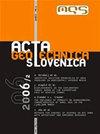Effect of particle roundness and morphology on the shear failure mechanism of granular soil under strip footing
IF 0.5
4区 工程技术
Q4 ENGINEERING, GEOLOGICAL
引用次数: 7
Abstract
This study investigates the effect of particles roundness and morphology on the shear failure mechanism of soil. A strip footing was modeled under laboratory conditions. Calcareous soil was tested with three roundness classes: angular, rounded and well-rounded shapes with sizes of 0.30 mm to 4.75 mm. These were divided into six different groups at three relative densities of 30%, 50% and 70%. A series of photographs was taken during the tests and analyzed using the particle image velocimetry (PIV) method to understand the soil-deformation mechanism. The results showed that increasing the sample sizes increased the affected area of the soil. At the same time, increasing the relative density caused a punching failure mechanism that went towards the general failure. The shear failure mechanism of the soil changed from general toward punching shear failure with increasing particle roundness. This effect was larger with the smaller materials. Underneath the affected layers of soil, the angular samples were deeper than the rounded and well-rounded samples. The affected depth in the angular soil was approximately 1.5B in the smallest size group. This was more than 3B and near 4B in the largest size group. Both the sides and the underlying soil layers should be considered on angular soils. The area under the footing becomes more important than the side parts after increasing the roundness of the particles.颗粒圆度和形态对条形基础下颗粒土剪切破坏机理的影响
研究了颗粒圆度和形态对土体剪切破坏机理的影响。条形基脚是在实验室条件下建模的。对钙质土壤进行了三种圆度等级的测试:尺寸为0.30 mm至4.75 mm的棱角状、圆形和圆形。将其分为六组,三种相对密度分别为30%、50%和70%。在试验过程中拍摄了一系列照片,并使用粒子图像测速仪(PIV)方法进行了分析,以了解土壤变形机制。结果表明,样本量的增加增加了土壤的受影响面积。同时,相对密度的增加导致冲压失效机制向一般失效方向发展。随着颗粒圆度的增加,土体的剪切破坏机制由一般变为冲切破坏。材料越小,这种影响越大。在受影响的土壤层下面,有棱角的样本比圆形和圆形样本更深。在最小尺寸组中,棱角状土壤中的受影响深度约为1.5B。在最大体型组中,这一数字超过了3B,接近4B。侧面和下层土层都应考虑在有棱角的土壤上。在增加颗粒的圆度后,基脚下方的区域变得比侧边部分更重要。
本文章由计算机程序翻译,如有差异,请以英文原文为准。
求助全文
约1分钟内获得全文
求助全文
来源期刊

Acta Geotechnica Slovenica
地学-工程:地质
CiteScore
1.20
自引率
0.00%
发文量
0
审稿时长
>12 weeks
期刊介绍:
ACTA GEOTECHNICA SLOVENICA aims to play an important role in publishing high-quality, theoretical papers from important and emerging areas that will have a lasting impact on fundamental and practical aspects of geomechanics and geotechnical engineering.
ACTA GEOTECHNICA SLOVENICA publishes papers from the following areas: soil and rock mechanics, engineering geology, environmental geotechnics, geosynthetic, geotechnical structures, numerical and analytical methods, computer modelling, optimization of geotechnical structures, field and laboratory testing.
The journal is published twice a year.
 求助内容:
求助内容: 应助结果提醒方式:
应助结果提醒方式:


